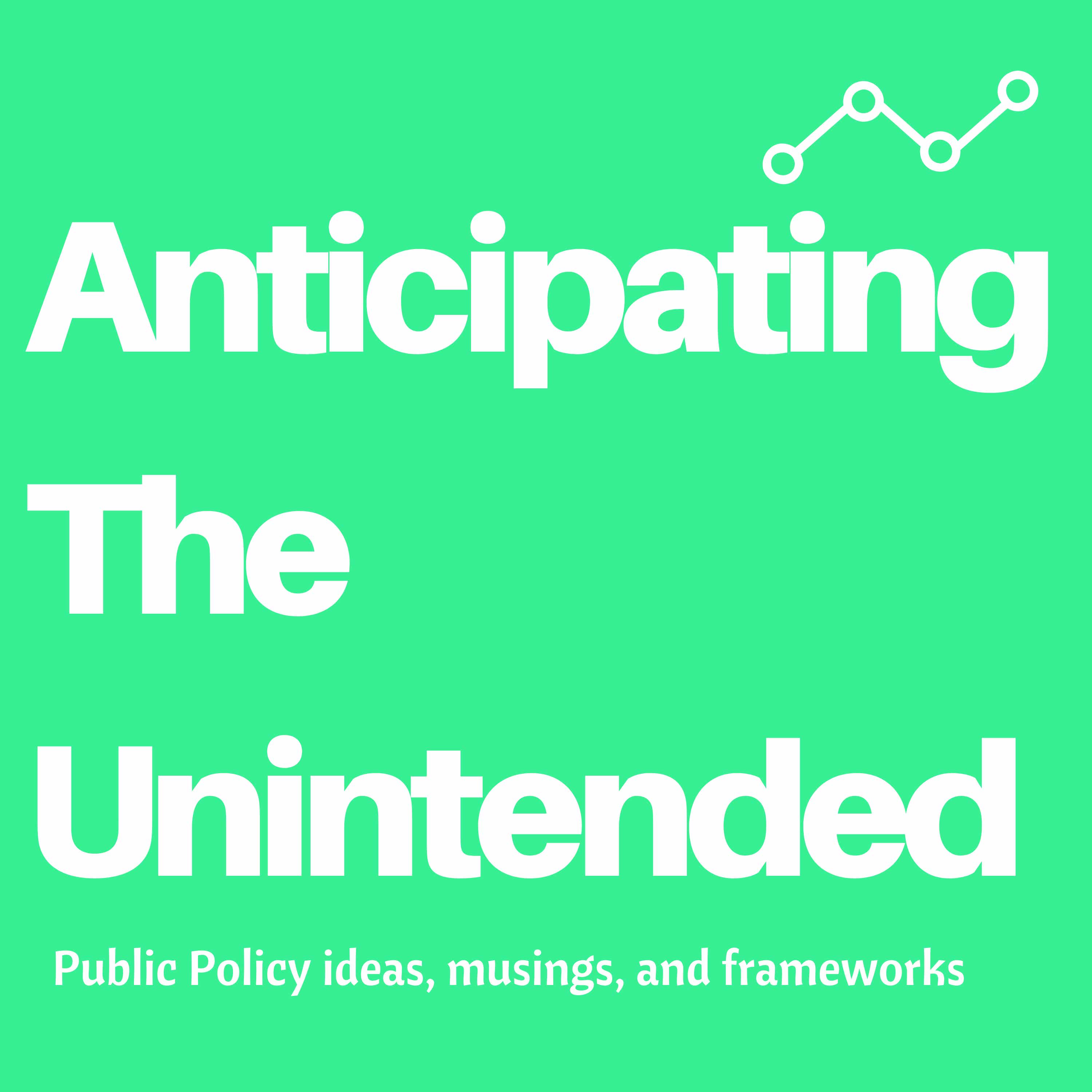#190 Hubris Leads to Downfall
Description
Global Policy Watch #1: FinTech Manoeuvres
Insights on global issues relevant to India
— RSJ
One of our favourite topics to talk about around here is regulations. We aren’t dogmatic about things. But the one principle that comes close to being a dogma for us is our belief in spontaneous order. The world is a complex interplay of many economic and social networks. Don’t try to force an order on it. Let the spontaneous, uncoordinated actions of the millions run their course. Some order will emerge from it. There might be occasional ‘disorder’ but inbuilt into such systems is an autocorrecting mechanism which will kick in. This is better than some powerful entity (like the State) trying to force order because it thinks it knows best. No one really can be a Laplace’s demon. The top-down forcing of an order will make things worse.
That said, we aren’t libertarians by any stretch. The State must intervene when there’s a market failure. And more than any other sector, I believe financial services need regulation because of two obvious market failures endemic to them.
One, there’s a serious information asymmetry between the supplier of these products and services, and their customers. The products get more complex over time as suppliers look for additional arbitrage to make higher income, and customers can only understand so much of what’s often non-intuitive. I mean, compounding as a concept is a leap for most people; figuring out more complex instruments ain’t going to be easy. Two, the market power and dominance gets built up really fast in this sector. With it comes the risk of a contagion or the spectre of ‘too big to fail’. All of these leads to misallocating of capital that’s worse than most state interventions. So, I tend to look at financial regulations somewhat more benignly than, say, regulating cattle transportation.
Having got that preamble out of the way, here’s a news item that many of you might have seen last week:
“The founder of the world’s second-largest cryptocurrency exchange, FTX, has apologised for his company’s near-collapse this week, saying he “f****d up” in his calculations and in his communications during the crisis.
Due to “poor internal labelling of bank-related accounts”, he said he “was substantially off” in his calculations of the sums that the exchange had lent out to users to let them make leveraged bets – borrowing money to trade with, magnifying potential gains and losses…
The sudden collapse in value was prompted by leaked documents which implied that Alameda Research, a hedge fund tightly intertwined with FTX through its common owner, Bankman-Fried, was, in effect, insolvent….
The leaks about Alameda turned into a crisis for FTX when Binance, the largest cryptocurrency exchange, announced it would sell its own major stake in FTX. The fire sale that followed crashed the token's value far below the $22 floor that FTX had committed to support and prompted the equivalent of a bank run at FTX itself as customers raced to withdraw their deposits faster than the exchange could process them.”
It wouldn’t be out of place to say there’s a lot to unpack there. But is there really? I have held a general theory about fintechs for a while. There are three sources of value in fintechs as I have seen them.
One, they build slick, frictionless journeys that make buying financial products easier and more intuitive. Traditional players either don’t think this way or their legacy systems just don’t allow them to create such convenience. This focus on customer journey is good and somewhat sustainable in sectors where customers value speed and efficiency over risk management. Now ‘friction’ isn’t great in most cases but it has a few benefits. It slows things for you to pause and reconsider. In financial services, some friction is necessary to protect the customer. Not all of them have the ability to manage speed and the attendant risks that
More Episodes
Prediction Time
—RSJ
In a year when countries as diverse as India, the United States, the United Kingdom, Russia, Taiwan, Pakistan and Palau go for their elections, it is tempting to go for an overarching theme for the year while looking ahead. Unfortunately, like these aforementioned elections...
Published 01/14/24
Published 01/14/24
Happy New Year
— RSJ
Happy 2024, dear readers!
We hope 2023 was good for all of you. If it wasn’t, we are glad that it’s behind you. We didn’t have too bad a 2023 ourselves. This newsletter went along swimmingly (or so we think) and we had our book ‘Missing in Action: Why You Should Care About...
Published 01/07/24


